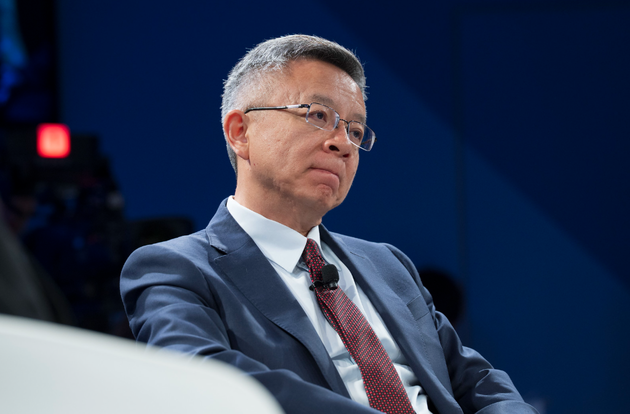On June 25, the 16th Annual Meeting of the New Champions of the World Economic Forum (also known as Summer Davos 2025) entered its second day. At the forum on securing economic growth drivers, Li Bo, Deputy Managing Director of the IMF, responded to a question from a journalist with National Business Daily (hereinafter referred to as NBD) about whether "artificial intelligence (AI) will bridge or widen the economic development gap".
Li Bo said that the pattern of developing countries adopting new technologies faster than developed countries could be replicated in the development of AI, which might offer developing countries an opportunity to leapfrog. However, he also emphasized that whether AI can enhance a country's development capabilities involves multiple factors, including infrastructure, technological accumulation, regulation, and spillover effects.

Photo/World Economic Forum
Developing Countries Can "Leapfrog" with AI, Unencumbered by "Legacy Systems"
NBD observed on-site that this year's annual meeting had a significant tilt towards discussions on AI-related topics. From the composition of the attendees' industries, representatives from AI-related companies were not in short supply.
At the end of the forum on securing economic growth drivers, participants also engaged in a discussion about the development of AI. Will the development of AI bridge the economic development gap, or will it widen the gap due to technological disparities?
In response to NBD's question, Li Bo said, "Not necessarily. Some argue that it might widen the gap, but I don't think that's a given. Looking at the adoption of technologies over the past two to three decades, the development of new technologies has sometimes provided developing countries with opportunities to leapfrog. Take digital payments as an example.
He continued, "The adoption of digital payment technologies in countries and regions like China and Africa has far outpaced that of developed economies like the United States. This is because developed markets suffer from path dependency; their existing market ecosystems are already very mature, and people are accustomed to using personal checks and credit cards for payments. Breaking free from this path dependency is extremely challenging and costly. In contrast, developing economies do not have this historical baggage, and the same applies to less developed countries."
Li Bo told NBD that this pattern could be replicated in the development of AI. "Some less developed countries do not have traditional systems and can start directly with artificial intelligence. In contrast, developed countries need to first consider how to deal with their existing ecosystems, so they are more cautious before switching to new systems. This developmental barrier is unique to developed countries. Therefore, relatively speaking, less developed economies may have certain relative advantages in this situation, and AI might offer developing countries an opportunity to leapfrog."
"Of course, leapfrogging is not a guaranteed outcome. Whether developing countries can use AI to enhance their national development capabilities and achieve leapfrogging also depends on multiple factors, including infrastructure, technological accumulation, regulation, and spillover effects," Li Bo pointed out.

Photo/Zhang Hong (NBD)
Pension Funds: A Key Path to Financial System Diversification
In addition, when discussing the development of the financial system, Li Bo noted that pension funds are an important means of achieving financial system diversification.
In the financial systems of East Asian countries, bank financing has played a significant role over the past 50 years. However, the bank-dominated model has limitations in supporting innovation and start-up enterprises, where capital markets have a comparative advantage. Therefore, it is necessary to further develop capital markets.
From a regional perspective, to achieve diversification, especially the disintermediation of finance, and to direct deposits towards more productive and innovative industries, pension reform is crucial. Pension reform is an important part of capital market reform because pension funds can provide long-term investment capital to support the development of capital markets.
Li Bo further pointed out, "Diversification should not only be reflected in the development of the financial system but also in the diversification of residents' savings instruments. Currently, many residents mainly save through bank deposits or real estate purchases. The emergence of pension funds offers a new avenue for residents' savings. By channeling deposits into pension funds and then converting them into capital market investments, we can provide financing support for start-ups and innovative enterprises. Therefore, diversification should cover both corporate funding sources and residents' savings methods."


 川公网安备 51019002001991号
川公网安备 51019002001991号





